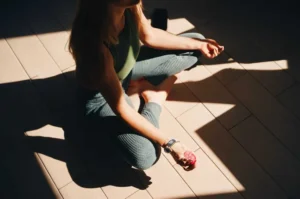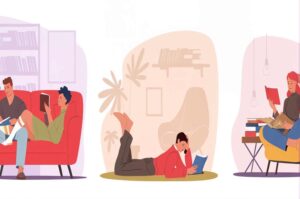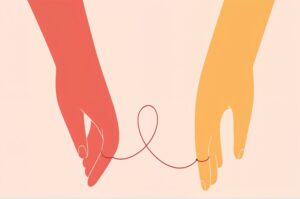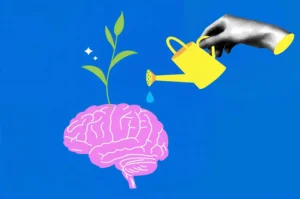In the digital age, social media platforms like TikTok, Instagram, and Twitter have become integral parts of our daily lives. While these platforms offer opportunities for connection, creativity, and self-expression, they also have a profound impact on mental health. This article explores how social media influences self-esteem, anxiety, and body image, and provides actionable insights for fostering a healthier relationship with these platforms.
Table of Contents
Toggle1. Introduction
Social media has revolutionized the way we communicate, share, and consume information. Platforms like TikTok, Instagram, and Twitter have billions of active users worldwide, making them powerful tools for connection and self-expression. However, the pervasive nature of social media has also raised concerns about its impact on mental health. From self-esteem issues to anxiety and body image concerns, the psychological effects of social media are complex and multifaceted.
This article delves into the ways social media influences mental health, focusing on self-esteem, anxiety, and body image. By understanding these impacts, we can take proactive steps to mitigate the negative effects and foster a healthier relationship with social media.
2. The Rise of Social Media
Social media has grown exponentially over the past two decades. Platforms like Facebook, Instagram, Twitter, and TikTok have become household names, with users spending an average of 2.5 hours per day on these platforms. While social media offers numerous benefits, such as staying connected with loved ones and accessing information, it also presents challenges for mental health.
The constant exposure to curated content, the pressure to gain likes and followers, and the prevalence of cyberbullying have all contributed to the growing concern about the psychological impact of social media.
3. Social Media and Self-Esteem
The Comparison Trap
One of the most significant ways social media affects self-esteem is through the comparison trap. Users often compare their lives to the highlight reels they see on platforms like Instagram and TikTok. This can lead to feelings of inadequacy, jealousy, and low self-worth.
- Highlight Reels vs. Reality: Social media users tend to share only the best moments of their lives, creating a distorted perception of reality. This can make others feel like their own lives are less exciting or successful.
- Upward vs. Downward Comparisons: Comparing oneself to someone who appears more successful or attractive (upward comparison) can harm self-esteem, while comparing oneself to someone less fortunate (downward comparison) may provide a temporary boost but is not a healthy long-term strategy.
The Role of Likes and Validation
Likes, comments, and followers have become a form of social currency on platforms like Instagram and TikTok. The pursuit of validation through these metrics can negatively impact self-esteem.
- Addiction to Validation: Receiving likes and positive comments can trigger the release of dopamine, a feel-good neurotransmitter. Over time, users may become addicted to this validation, leading to anxiety and self-doubt when they don’t receive enough engagement.
- Self-Worth Tied to Metrics: When self-worth becomes tied to social media metrics, users may feel inadequate if their posts don’t perform well. This can create a cycle of seeking external validation rather than cultivating intrinsic self-esteem.
4. Social Media and Anxiety
Fear of Missing Out (FOMO)
The fear of missing out (FOMO) is a common phenomenon exacerbated by social media. Seeing friends and influencers post about exciting events, vacations, or achievements can make users feel like they’re missing out on life.
- Constant Connectivity: The 24/7 nature of social media means users are constantly exposed to updates from others, making it difficult to disconnect and relax.
- Pressure to Keep Up: FOMO can lead to overcommitment, as users try to keep up with the activities and experiences they see online. This can result in burnout and increased anxiety.
Cyberbullying and Online Harassment
Cyberbullying and online harassment are significant sources of anxiety for social media users, particularly among teenagers and young adults.
- Anonymity and Toxicity: The anonymity of the internet can embolden individuals to engage in harmful behavior, such as trolling, hate speech, and cyberbullying.
- Impact on Mental Health: Victims of cyberbullying may experience anxiety, depression, and even suicidal thoughts. The constant exposure to negative comments and messages can erode self-esteem and create a hostile online environment.
5. Social Media and Body Image
The Influence of Filters and Editing
Social media platforms like Instagram and TikTok are filled with images and videos that have been heavily edited or filtered. This can create unrealistic beauty standards and negatively impact body image.
- Unrealistic Standards: Filters, photo editing apps, and cosmetic procedures promoted on social media can create an unattainable ideal of beauty. This can lead to body dissatisfaction and low self-esteem.
- Self-Objectification: Constantly viewing and comparing oneself to edited images can lead to self-objectification, where individuals view their bodies as objects to be judged and critiqued.
The Rise of Body Positivity Movements
Despite the negative impact of social media on body image, there has been a growing movement towards body positivity and self-acceptance.
- Challenging Beauty Standards: Body positivity advocates use social media to challenge traditional beauty standards and promote diversity in size, shape, and appearance.
- Empowerment and Representation: By sharing unedited images and personal stories, influencers and activists are helping to create a more inclusive and accepting online environment.
6. Platform-Specific Impacts
TikTok: The Pressure to Perform
TikTok’s short-form video format encourages users to create and share content quickly. While this can be fun and creative, it also creates pressure to perform and gain viral fame.
- Algorithmic Pressure: TikTok’s algorithm favors content that gains rapid engagement, leading users to feel pressured to create attention-grabbing videos.
- Comparison and Competition: The platform’s emphasis on trends and challenges can lead to unhealthy comparisons and competition among users.
Instagram: The Curated Reality
Instagram is known for its highly curated and visually appealing content. While this can be inspiring, it also contributes to the comparison trap and unrealistic beauty standards.
- Influencer Culture: Influencers on Instagram often promote products and lifestyles that are unattainable for the average user, leading to feelings of inadequacy.
- Mental Health Features: Instagram has introduced features like hiding likes and providing mental health resources to help users manage the platform’s impact on their well-being.
Twitter: The Echo Chamber of Opinions
Twitter’s fast-paced, opinion-driven environment can be both empowering and overwhelming.
- Polarization and Conflict: Twitter’s emphasis on real-time updates and opinions can lead to polarization and online conflict, contributing to anxiety and stress.
- Information Overload: The constant stream of information on Twitter can be overwhelming, making it difficult for users to disconnect and relax.
7. Strategies for Healthier Social Media Use
Setting Boundaries
- Time Limits: Set daily time limits for socal media use to prevent overconsumption and reduce anxiety.
- Notification Management: Turn off non-essential notifications to minimize distractions and create a more mindful online experience.
Practicing Digital Detox
- Regular Breaks: Take regular breaks from socil media to recharge and focus on offline activities.
- Mindful Usage: Be intentional about when and why you use social media, avoiding mindless scrolling.
Cultivating a Positive Online Environment
- Curate Your Feed: Follow accounts that promote positivity, diversity, and authenticity. Unfollow or mute accounts that trigger negative emotions.
- Engage Meaningfully: Use socil media to connect with others in meaningful ways, rather than seeking validation through likes and comments.
8. Conclusion
Social media platforms like TikTok, Instagram, and Twitter have transformed the way we connect and share information. However, their impact on mental health, particularly self-esteem, anxiety, and body image, cannot be ignored. By understanding these effects and implementing strategies for healthier social media use, we can harness the benefits of these platforms while minimizing their negative consequences.
Ultimately, the key to a healthy relationship with social media lies in balance, mindfulness, and self-awareness. By taking control of our online experiences, we can create a more positive and empowering digital environment for ourselves and others.
This article provides a comprehensive overview of the impact of socia media on mental health, offering actionable insights for readers. By addressing the challenges and opportunities presented by platforms like TikTok, Instagram, and Twitter, we can foster a healthier and more mindful approach to social media use.
Read Also:
Supercharge Your Brain: 10 Powerful Exercises to Boost Memory, Focus, and Cognitive Power
FAQs
1. How does social media affect self-esteem?
Social media often promotes comparison, as users are exposed to curated highlight reels of others’ lives. This can lead to feelings of inadequacy, jealousy, and low self-worth. The pursuit of likes and validation can also tie self-esteem to external metrics, making users feel inadequate when their posts don’t perform well.
2. What is the “comparison trap” on social media?
The comparison trap refers to the tendency to compare one’s own life to the idealized versions of others’ lives portrayed on social media. This can create unrealistic expectations and lead to feelings of dissatisfaction, low self-esteem, and anxiety.
3. How does social media contribute to anxiety?
Social media can contribute to anxiety through:
- Fear of Missing Out (FOMO): Seeing others’ exciting experiences can make users feel left out or pressured to keep up.
- Cyberbullying: Negative comments, trolling, and online harassment can cause significant stress and anxiety.
- Information Overload: The constant stream of updates and news can be overwhelming and increase stress levels.
4. What is the impact of social media on body image?
Social media often promotes unrealistic beauty standards through edited photos, filters, and curated content. This can lead to body dissatisfaction, low self-esteem, and even disordered eating behaviors. However, body positivity movements on social media are working to challenge these standards and promote self-acceptance.
5. How does TikTok affect mental health?
TikTok’s fast-paced, trend-driven environment can create pressure to perform and gain viral fame. The platform’s algorithm favors highly engaging content, which can lead to unhealthy comparisons and competition. However, TikTok also hosts communities that promote mental health awareness and body positivity.
6. What is the role of Instagram in shaping self-esteem?
Instagram’s focus on visually curated content can lead to the comparison trap and unrealistic beauty standards. Influencer culture often promotes unattainable lifestyles, which can harm self-esteem. However, Instagram has introduced features like hiding likes and mental health resources to mitigate these effects.
7. How does Twitter impact mental health?
Twitter’s fast-paced, opinion-driven environment can lead to polarization, online conflict, and information overload. While it can be a platform for meaningful conversations, it can also contribute to stress and anxiety due to its often toxic and divisive nature.
8. What are some strategies for healthier socia media use?
- Set Boundaries: Limit daily screen time and turn off non-essential notifications.
- Practice Digital Detox: Take regular breaks from social media to recharge.
- Curate Your Feed: Follow accounts that promote positivity and unfollow those that trigger negative emotions.
- Engage Meaningfully: Use social media to connect with others in authentic ways rather than seeking validation through likes.
9. Can it have positive effects on mental health?
Yes, social media can have positive effects when used mindfully. It can provide:
- A sense of community and support.
- Access to mental health resources and awareness campaigns.
- Platforms for self-expression and creativity.
- Opportunities to connect with like-minded individuals.
10. What is body positivity, and how is it represented on it?
Body positivity is a movement that challenges traditional beauty standards and promotes acceptance of all body types. On social media, body positivity advocates share unedited photos, personal stories, and messages of self-love to create a more inclusive and accepting online environment.









